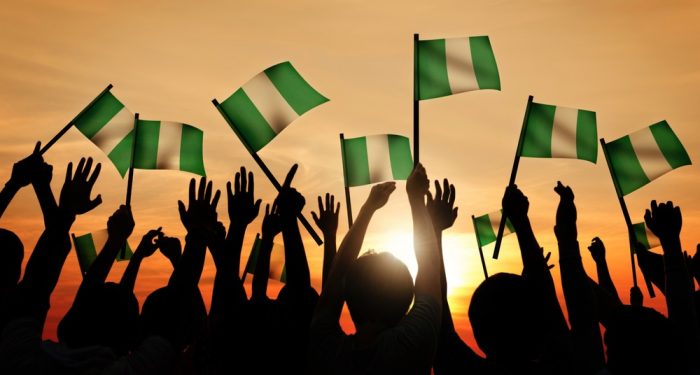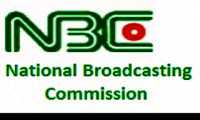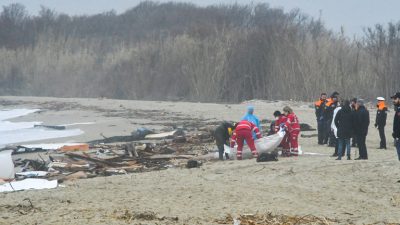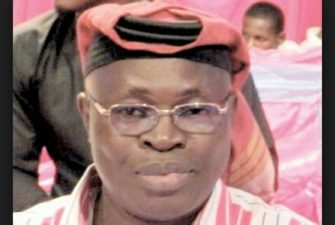By BASHIR ADEFAKA
Forbes saw all of those mess-ups with Nigerian economy and couldn’t have rated Nigeria more or less than zero under that era. But everybody, every media or every research firm in the world is not like we are in Nigeria here, where people, who should guide the public with news and information, love to perform only when the message about their country is negative.
Since September 9 and 12, 2018 that a report in Voice of Nigeria (VON) and Vanguard Newspaper, respectively, hinted of Forbes’ announcement of Nigeria as Best Economy in Africa, nobody had seen more than negative news still being peddled by the rest of the media. That is even in spite of the fact that that the National Bureau of Statistics (NBS) on Monday December 10, 2018 released the country’s Gross Domestic Product (GDP) report for the third quarter with the economy recording a growth rate rise to 1.81 percent.
It is therefore no wonder many Nigerians still talk about bad economy to the extent that economy destructive party like Peoples Democratic Party (PDP) and its Presidential Candidate Alhaji Atiku Abubakar, his running mate Peter Obi and other politicians of that hopeless party can have the guts to tell vulnerable Nigerians that the person who knows the economy they should vote 2019 and that Atiku is the person.
It worked for them for a while because, to citizens who just chose not to know what has been going on but live on the twists and lies being fed to them by these political elements celebrated the Atikulated.
In truth, Forbes as a major research firm realises that economy is not grown by peanuts shared in the name of vote-buying which PDP, sometimes also other political parties’ politicians, being listened to by those vulnerable masses, mainly do.
They know that economy is grown when concerted effort is made at diversification, infrastructure building including power, investment in human capital particularly through the Small and Medium Enterprises (SMEs), Social Intervention Programme (SIP) namely TraderMoni, school feedings and conditional cash transfer as monthly support for the poorest of the poor, the special investment in Nigerian farmers who get non-burdensome loans minimum of N500,000 to a single farmer with cheaper fertilizers, provided wetting machines which enable them engage in dry season farming thereby making Nigeria now under three years of the Muhammadu Buhari Administration an exporter of food and other agricultural produce after taking care of local needs.
Forbes was actually alive when under PDP Administration of Goodluck Jonathan declared Nigeria, by itself, as Africa’s biggest economy with $500 billion. At the end of the day before the party and its politicians were swept out of power, they were borrowing loan on monthly basis to pay salaries of workers while none of capital projects they awarded was being done. To worsen the economy situation the more, the PDP left office with backlog of salaries discrepancies, contracts awarded paid for, undone and yet huge debts that All Progressives Congress (APC) Administration of President Muhammadu Buhari not only inherited but has paid in three years despite meager resources he earns compared to bumpers that they (PDP) were getting during the era of economic boom.
They claimed they were paying hundreds of millions of Naira, sometime billions of dollars on subsidy to make Nigerians buy fuel, diesel and kerosene at cheaper rates. Nigerians, under them, bought kerosene between N150 and N200 without anybody asking why, and queues enveloped Nigeria’s petroleum stations due to impunity as marketers claimed no fuel although black marketers were on rampage exploiting the impunity of the “wicked” government-marketer impunity to extort the innocent Nigerians they should serve diligently with the proceeds of state resources or they and NUPENG would go on strike over unpaid subsidy and the rest. Yet, at daily output of 2.4 million barrel per day, Nigeria was selling its crude for between $100 and $140 per barrel totaling $336 million being realized from oil on daily basis under PDP. It was a huge amount of money.
Upon all of these, when Buhari’s APC Government came, nothing PDP claimed Nigeria was in Africa was found to be true. Foreign Reserves had been depleted to $24 billion, foreign debt was seen to be $60 billion, 400 percent above its saving, construction companies already laid off over 60,000 workers and were closing shops as government under PDP didn’t pay them. Yet what they claimed they did for government were nowhere to be seen. Lagos-Ibadan Expressway was always a death trap, Onitsha-Enugu Road was sorry case, East-West Road was centre of sorrow and deaths, it can go on.
Many states were unable to pay their workers for no other reason but because the source of their earnings which is Federation Account had been badly and corruptly mismanaged. Even the Excess Crude Account (ECA) that was kept by joint consent of Federal and States was freely depleted by the Federal Government under PDP. Only for APC’s Buhari to be the one helping those failed states now with bailouts and Paris Over-Deducted Funds the PDP administrations failed to refund for over 16 years.
Not only that, still under the earn-more-do-less era of PDP, insecurity grew because the politicians in government diverted funds appropriated for fighting insurgencies and squandered same, some for financing their party’s 2015 elections some into individual pockets of PDP leaders and members.
Forbes saw all of those mess-ups with Nigerian economy and couldn’t have rated Nigeria more or less than zero under that era.
It is therefore baffling that, media and other Nigerians charged with information management decide to pretend like they do not see how Nigeria has changed for better, economy now on the rise after having survived the recession APC’s Buhari inherited from PDP’s Jonathan, inflation has been tamed and exchange rate stabilized as well as Nigerians now eat and use more what they produce and the non-oil sector now promisingly doing the nation proud.
Forbes saw all of those mess-ups with Nigerian economy and couldn’t have rated Nigeria more or less than zero under that era.
But everybody, every media or every research firm in the world is not like we are in Nigeria here, where people, who should guide the public with news and information, love to perform only when the message about their country is negative.
Vanguard in September reported a major research firm, Forbes Africa rated Nigeria as the 2018 best economy in Africa. According to Forbes, Nigeria came top with $172 billion, which was followed by South Africa with $166.735 billion. Also on the list was Egypt as third with $78 billion, Algeria with $66, Lybia :$65, Botswana: $22.675, Ghana :$20.458 Morroco :$18, Ivory Coast :$11 and Madagascar with $6.766 billion. Nigeria’s West-African neighbours, Ghana, is seventh with $20.458, Morroco is eighth with $18 billion, Ivory Coast is ninth with $11 billion while Madagascar is tenth with $6.766 billion.




